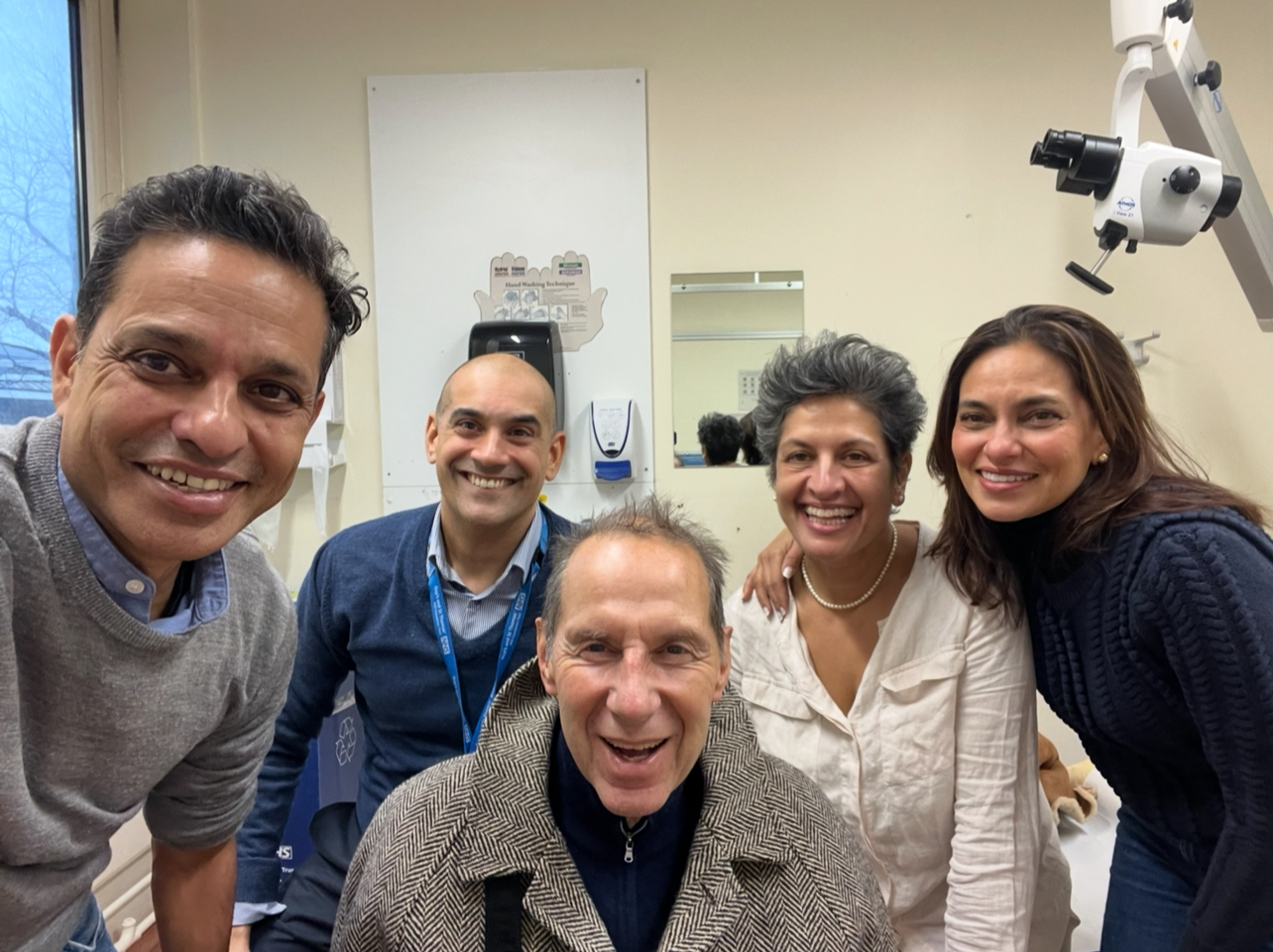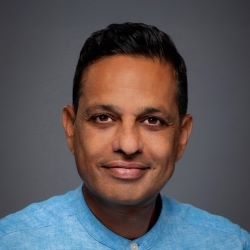As an oral and maxillofacial surgery (OMFS) consultant, I thought I knew all about mouth cancer – after all, treating it is my job. But there were some things I did not know.
My personal journey with mouth cancer is particularly poignant because I am a head and neck surgeon specialising in surgery for the very cancer I got. I am sharing my story for this blog, especially as November is Mouth Cancer Action Month, because the experience has profoundly changed my perspective on patient care.
A career dedicated to head and neck cancer
I was born and brought up in Kenya, East Africa – the cradle of mankind. The face and its evolution fascinated me from childhood. A bike accident back home, where I knocked out a front tooth, left a lasting mark and planted the seed that drove me to study dentistry at University College London (UCL). After dental school, I worked as an anatomy demonstrator before completing a master’s degree in hard tissue biology and physical anthropology at UCL. My career crystallised when I started as a house officer in OMFS at the Royal London Hospital. I knew I wanted to specialise in OMFS, with a focus on head and neck cancer despite the long training ahead.
I initially worked as a consultant head and neck surgeon at the Royal London with my senior colleague and mentor Professor Iain Hutchison. I am now based at Queen’s Hospital, Romford, focusing on head and neck surgery for skin cancer, salivary glands and the skull base. My interest in early diagnosis began 15 years ago because I saw what mouth cancer can do.
My mortality was staring me in the face.
The diagnosis that changed everything
My ordeal began in a strangely familiar way. In September 2024 I had a second bike accident, fracturing my shoulder in Bali, which forced me off work. Then in December I developed two sore areas on my tongue. One resolved; the other persisted and became thicker with a rolled edge. I had a biopsy in my own department within two weeks after the lesion started to change.
The pathologist called and said: “Neil, I’m really sorry. It’s cancer.” Two weeks later I underwent major head and neck surgery but the final histology showed deep invasion – an unexpected stage three mouth cancer.
It was a shock, but my surgeon delivered the news with exceptional professionalism and kindness. What I thought would be major but curative surgery became life-threatening; stage three survival rates can be 50% or less. My mortality was staring me in the face.
Treatment, an unexpected diagnosis, and recovery
What kept me going was the strength of my friends and family – I was truly carried on their shoulders. I had the advantage of knowing the team who treated me including the cancer nurse specialists, physiotherapists, dietitians, speech and language therapists and the oncologist. Yet the six weeks of radiotherapy hit hard: the fatigue afterwards was so profound I could barely get out of bed for a month.
The fatigue afterwards was so profound I could barely get out of bed for a month.

At Neil's (left) initial consultation with his surgeon, Mustansir Alibhai (back), he was supported by Professor Iain Hutchison (centre front), close friend Amit Coonar, and sister (far right) Tanya Del Federico.
Just as I was recovering, I developed bowel discomfort and decided to do a faecal immunochemical test, which showed blood. Further investigation confirmed early-stage bowel cancer. I was told it was partly because of the immune crash I had after the radical radiotherapy. This time I truly lost my sense of control. Unlike my own field, I had no knowledge of the pathway or the prognosis. Waiting for the post-operative results was terrifying. That second experience – of uncertainty – was in many ways much harder than the first.
Lessons learned: A moral framework for cancer care
These experiences have changed how I practise, leading me to look through a completely different lens. Going through two very different treatments has stripped things down to what really counts. I now believe we need a moral framework for the management of cancer care – a triad of removing delay, communicating certainty, and protecting dignity.
Firstly, we must remove delay because time is not neutral. Diagnostic waiting harms patients biologically and emotionally.
Secondly, we must communicate certainty – because uncertainty is corrosive. Truth, even when difficult, allows people to cope; honesty gives structure to fear.
Finally, we need to protect dignity – because treatment may take function but must never take personhood. In head and neck cancer especially, the loss of speech, the ability to eat and how we appear to the world, can threaten identity itself.
The loss of speech, the ability to eat and how we appear to the world, can threaten identity itself.
I am a patron of facial surgery research foundation Saving Faces established by Professor Hutchison. It remains the only UK charity dedicated to research on the face and mouth. Through Saving Faces, national studies have changed clinical practice – notably the selective elective neck dissection trial, in which I was the second-largest contributor after Professor Hutchison. The study findings (which related to early intervention) have now been adopted internationally, saving thousands of lives each year. Little did I know I would one day benefit personally from the very evidence we helped to create.
The importance of early action and innovation
The political and financial case for prompt treatment is clear. I would have been in a very different place had I not been treated so swiftly. Investment in reducing waiting lists and establishing a national framework built on this triad of care is essential.
Implementing innovation can be slow, but once embedded, we wonder how we ever managed without it. However, I realise that change can take time and this was brought home to me when I conceived a tele-triage clinic for oral cancer diagnosis. Although it took time to introduce, it has significantly helped reduce delay in diagnosis and patient anxiety.
Every dentist can make a difference
Every GDP can save a life. A second look in the floor of the mouth and along the sides of the tongue where lesions can hide can make all the difference. A timely suspected cancer referral can remove delay, restore certainty, and protect dignity. Early action costs little – waiting costs everything.
Every GDP can save a life.
Learn about our work on preventing oral cancer. Members can earn CPD on the topic with our Oral Cancer Recognition Toolkit in partnership with Cancer Research UK.

